As South Africa's 2025 pomegranate season is about to start later in December one of the leading exporters of this fruit from South Africa, Star South, has taken a different approach to re-imagine the entire value chain. In this first of two articles, Jaco Rheeder, Managing Director of the Wellington based Star South who personally oversees their pomegranate programme, explains their approach: "We make use of the country's unique and long supply window to the United Kingdom export market. We started a few years earlier by taking a structural approach to the entire South African pomegranate value chain."
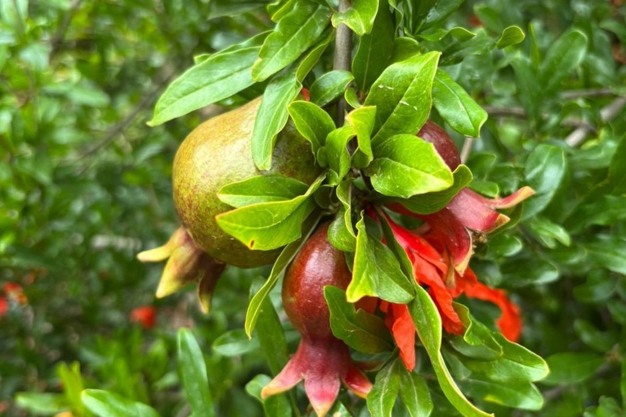
He says it is also not as easy to grow pomegranates as an alternative crop as some would believe. It has developed into a more professional and organised industry in South Africa. That is why they have re-imagined the entire pomegranate value chain in South Africa.
"We looked at what's important for a farmer, especially on pomegranates. He looks at the amount of tons that was delivered to the pack house, what the nett return on this was across all fruit specifications minus all associated packaging costs to determine the net farming income for the farmer. We must make a plan to sell the whole bin. Traditionally it is packed as Class 1 fruit, Processing grade and the rest is sent for juice. We work with our clients to try to find a market for each and every type of fruit possible in the bin from well-coloured large fruit with few cosmetic defects to smaller fruit, those with various degrees of sunburn and even cracked fruit without the arils inside being visible. We sat with them, developed packaging that suits every type of fruit and market segment. This is especially important because some seasons we have a lot of small fruit which cannot be de-arriled cost efficiently. Some years we are faced with fruit with excessive external scarring due to a windy summer and that is when it is important to have access to the best peeling programmes available internationally. We even have customers that have the ability to process cracked fruit, as long as the arils are not exposed. We are also very focussed on the South African domestic market where we use innovative packing material design such as upright standing bags to promote sales," explains Rheeder.
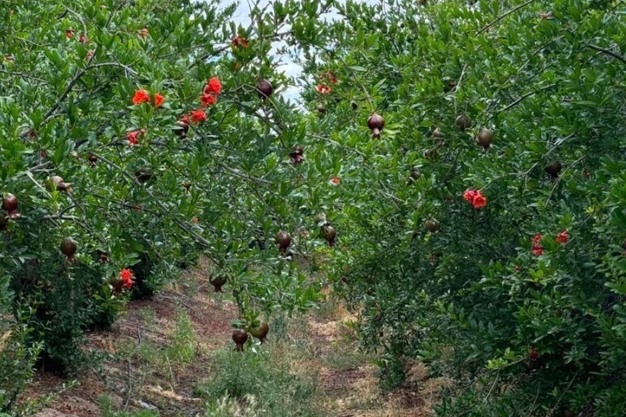
Besides looking at those aspects Star South also looked at the shipping process and shelf life. "We did other things. We fumigate our own containers before we load with a product that is 100% food safe. We start here with the process. We also pack fruit in specially designed modified atmosphere (MAP) bags to manage the humidity and oxygen exposure of the fruit to limit external fungal growth which is a big enemy of pomegranates. We work closely with people in Türkiye and Israel to continuously improve our post-harvest protocols to maximise shelf life with trials here in South Africa too."
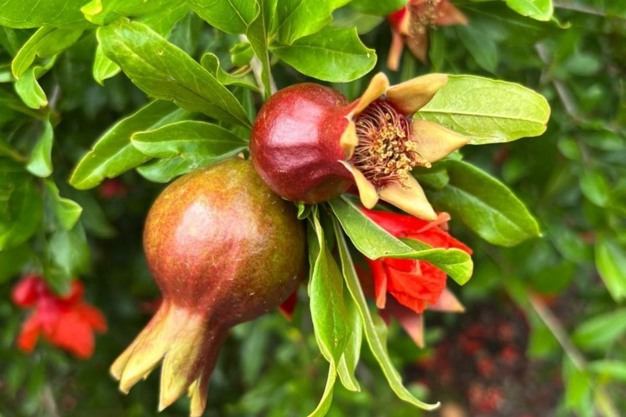
Star South keeps a retention sample of every batch that is exported for their own reference and R&D purposes. They also assist growers with the expensive and time-consuming audits that are required to access the best markets. "We're responsible for 80% of the pomegranates that goes to the UK from South Africa so we take compliance very seriously. We do not only help with the local Siza accreditation, but also with Global Gap, M&S audit, Tesco Leaf, there's so many that growers must adhere to. We ensure that growers have the right accreditation at pack house and farm level. Growers often say they can't understand the accreditations, it's very expensive and there's a lot to do. We don't look at it that way. For us, it's an absolute pleasure, we take the pain out of the process for the farmer, whatever the farmer needs we accredit for. In this way we empower the thousands of tons of pomegranates exported from South Africa to the UK and EU each year," proclaims Rheeder.
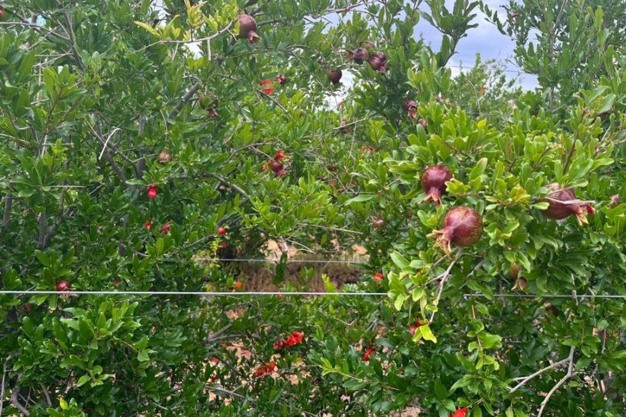
He says pomegranates were traditionally pitched as diversification and alternative crop, now they helped to switch it to a primary crop for growers. "Next we must get control over our key volumes. We partnered with Christo Nortje, a pomegranate grower himself, as agronomist who is technically very strong to assist our growers and to help us develop the industry. Until recently he served on the Pomegranate South Africa industry body. He took farmers through the first season, and now they are in the second season, handling all farming growing processes. Our aim is not only to help our farmers increase their yield, but also to get a more uniform production of fruit across the board for exports."
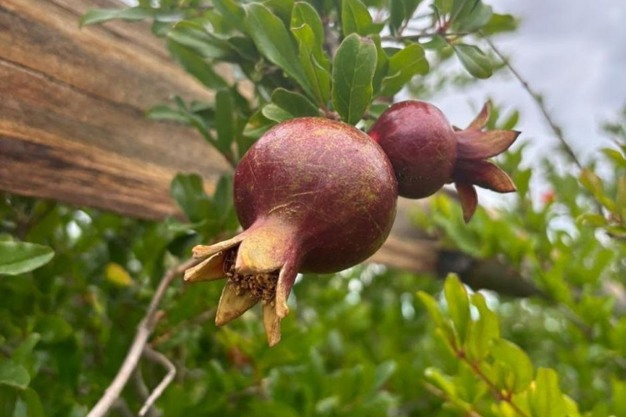
"We have a marketing plan to sell the whole bin, this created a lot of hope for growers. As a result the growers want to plant more. Christo also has a nursery and he does plant propagation. This gives us control over the key volumes, over quality and we focus on our accreditations to help growers, as well as the category managers. We are busy with trees, the growers plant five hectares at a time. About 20% of the hectares are in the Northern Provinces, but with climate challenges and we are taking them head-on to try and increase early season volumes there, but the main crop remains in the Mediterranean climate of the Western Cape because of the superior quality we are able to grow here The risks are less because the Cape does not get rain in summer, unlike up North," states Rheeder.
For more information:
Jaco Rheeder
Star South
Tel: +27 (0) 21 864 3655
[email protected]
www.starsouth.co.za
